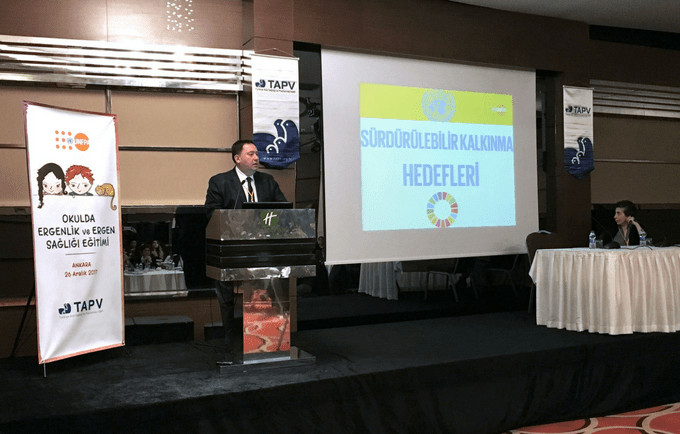26 December 2017, Ankara - United Nations Population Fund (UNFPA) Turkey Office and Turkish Family Health and Planning Foundation held a joint event on the 26th of December, 2017 under the title "Consultation Meeting on Adolescence and Adolescence Health at School."
The meeting was organized with the objective to develop the curricula of school-based educational programmes for adolescents and empower service providers with regard to adolescent health and reproductive health in order to improve the services provided by psychological advisors and counsellors in schools.
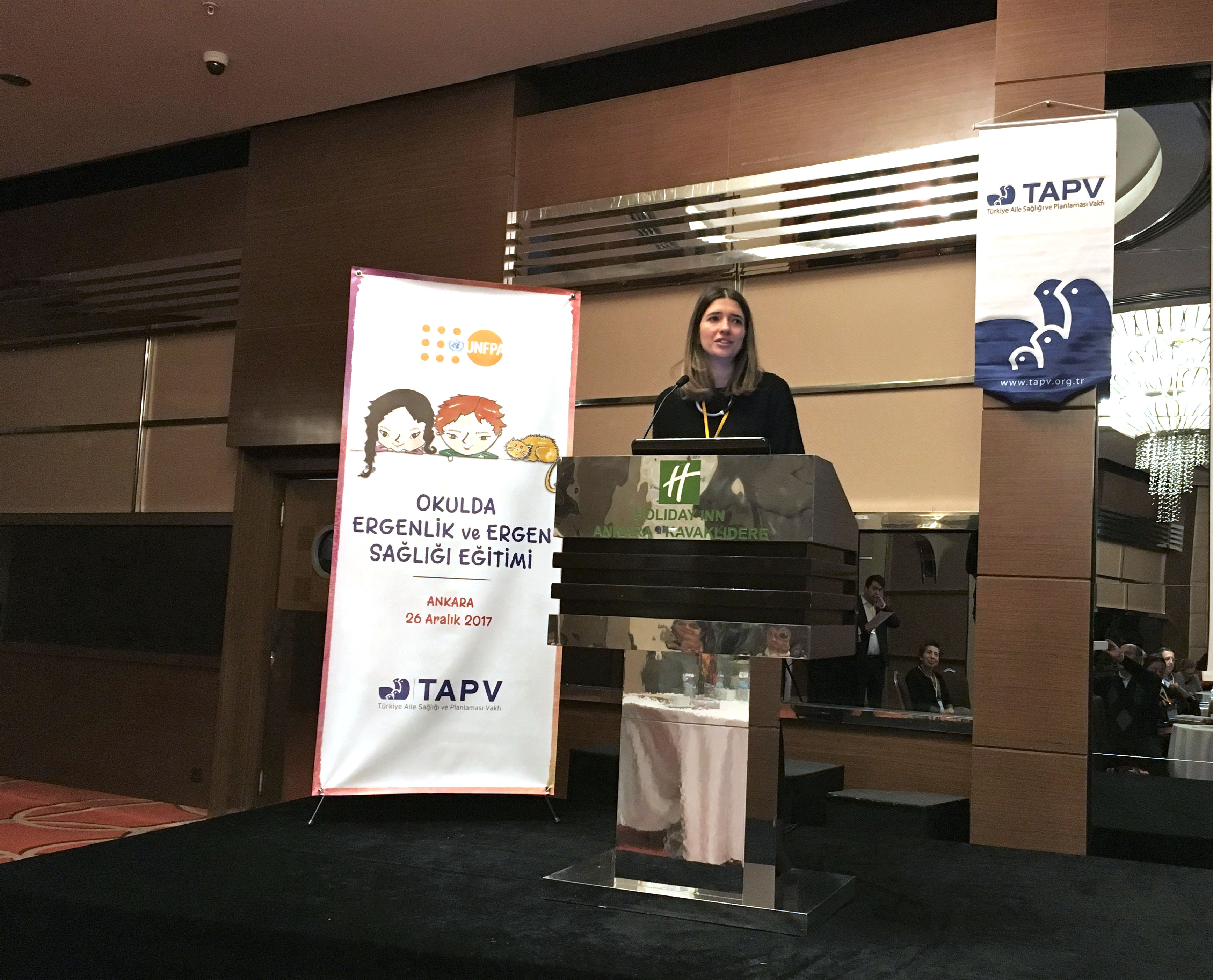
Zeynep Başarankut Kan, Assistant Representative of the United Nations Population Fund (UNFPA), who made a speech at the opening session of the meeting said: "Adolescents and young people need to be informed about their development and reproductive health, but in their social environment they can generally get no information from adults or family members in this respect. With schools that can also provide limited guidance in this regard, adolescents and young people have few chances to get informed in this context. Adolescence health education aims to inform and upskill young people, providing them with a comprehensive education on life skills, so that they can make choices and be engaged in acts which are conscious, deliberate and respective with respect to physical and mental development as well as reproductive health. Today we have come together in this event we have organized in cooperation with the Turkish Family Health and Planning Foundation in a multi-sectoral and multi-stakeholder approach and understanding. We project, with your valuable support, to develop joint projects and sustainable practices apropos of providing access to exact information at the right time regarding adolescent health. For this reason, from this very day on, proposals and interventions to be developed with your valuable support and participation will certainly play a pioneering role with respect to meeting a significant need in this context."
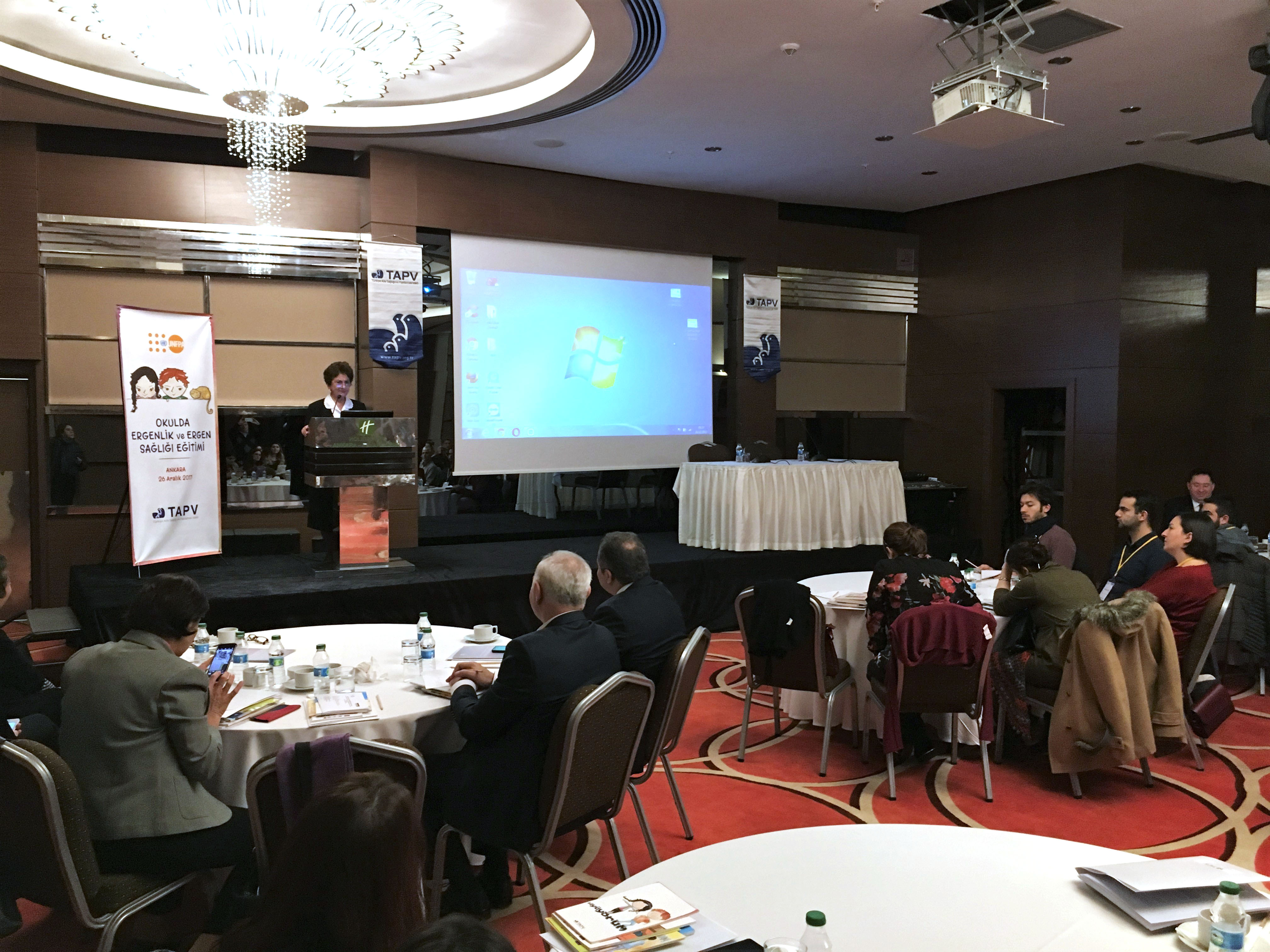
In her opening speech, Prof. Dr. Ayşe Akın, a member of the board of the Turkish Family Health and Planning Foundation, said: "Our projects exactly overlap with Sustainable Development Targets. Adolescence is a specific period characterized by specific features and challenges, where young people have to face certain risks. They experience rapid changes in this time span. In most cases, they have to struggle through these problems and this period is marked with changes. In this precarious period, adolescents need to be supported by us. It will play a crucial role well into the future that they receive our support in this period of great consequence. I am certain that we will achieve success through such activities, as the one we hold here today, we would organize with the support of NGOs and international organizations such as the United Nations Population Fund, which provide a platform for representatives from diverse institutions."
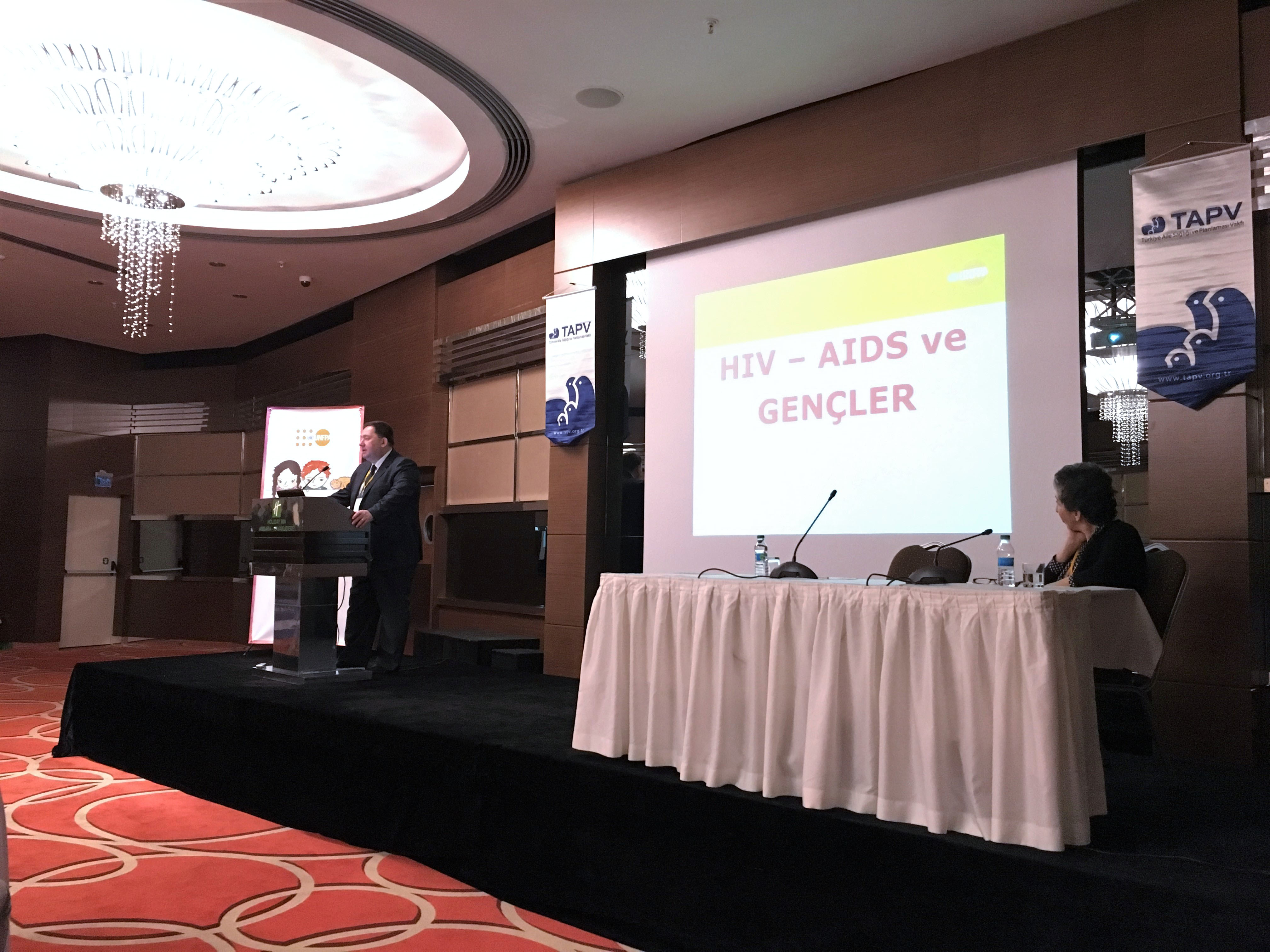
Dr. Gökhan Yıldırımkaya, Productive Health Programme Coordinator of the United Nations Population Fund (UNFPA), who made a speech at the panel session of the meeting, said: "Due to lack of knowledge and an insufficient number of counselling and health service units, we cannot sufficiently serve the adolescents who constitute an important and an ever-growing group in the population. Counselling and health services provided in youth-friendly educational programmes specifically tailored to the age group are given priority in schools. Looking at the history of health education in schools in Turkey, we see that the year 1992 stands out as the year in which the physical changes in adolescence, problems young people experience in this period and probable solutions were included for the first time ever in the curricula developed for science classes for sixth graders; up to that year such a subject had not been taught in schools. The Health Services Office under the Ministry of Education and the Human Resources Development Foundation carried out the project 'Consciousness Raising in Adolescents Regarding Health Matters' between 2001 and 2005 with support provided by the United Nations Population Fund (UNFPA). The project’s science board determined the subjects the project would focus on in the educational programmes for primary schools, which included general information concerning health issues and specific information regarding reproductive health. With this project, the Ministry of Education argued for more attention to the health of adolescents."
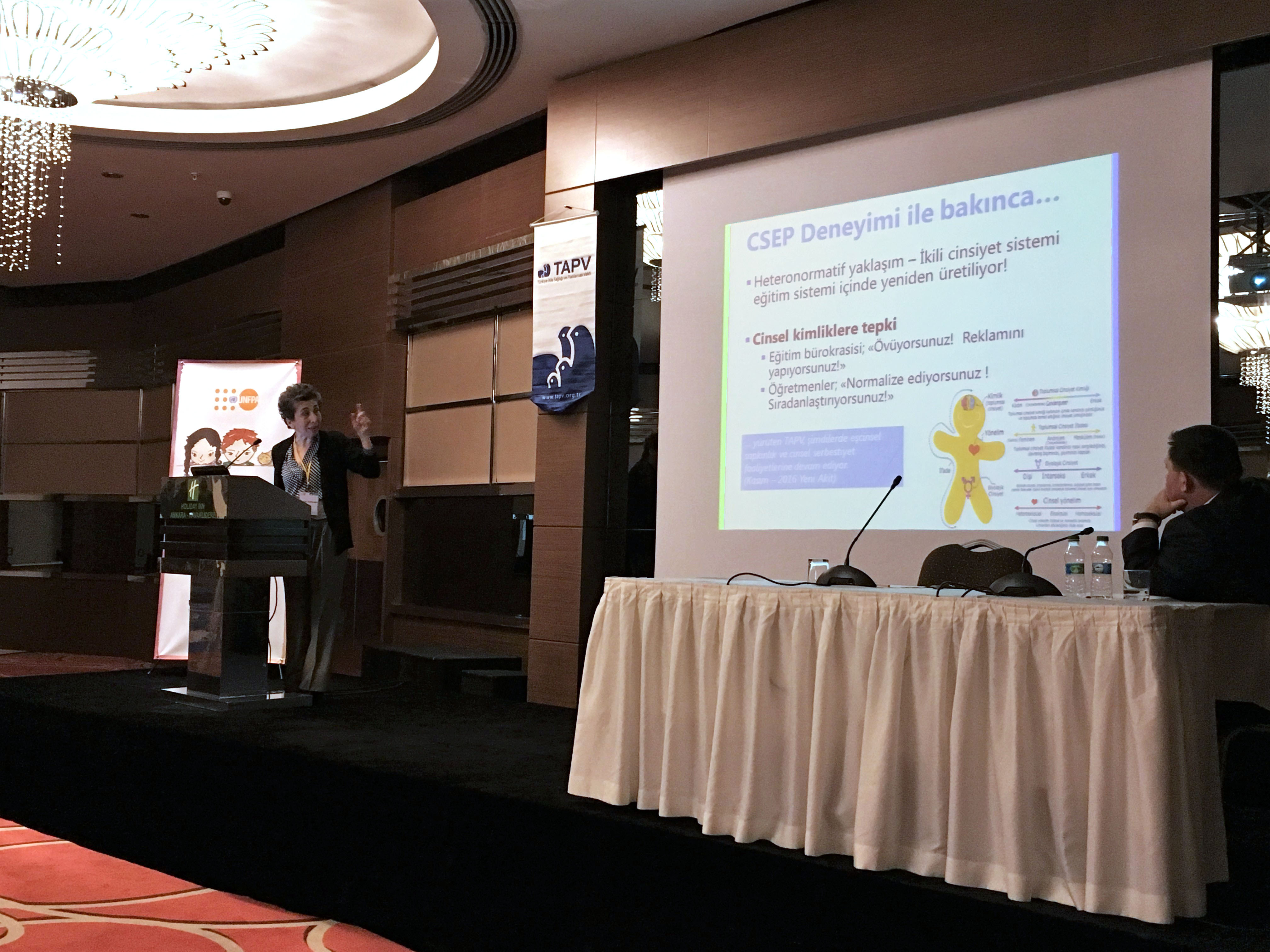
Ms. Nurcan Müftüoğlu from the Turkish Family Health and Planning Foundation also made a speech during the panel. In her presentation Ms. Müftüoğlu said that young people regard sexuality as something immoral and therefore prefer, in adolescence period, to discuss their sexual concerns with their friends instead of seeking information in their family circle. She further said that young people should be given the opportunity to establish their own control mechanism through educational programmes concerning sexual health tailored specifically for them, instead of keeping them under control by adults.
After the panels, the participants held discussion sessions in the groups set up with a special focus on topics such as "supporting adolescents in educational settings relating to social and emotional upskilling", "supporting young people through school-based adolescent health programmes", "adolescent health approach based on children’s rights" and "practical approaches to educational health programmes for adolescents".
In conclusion, the workgroups worked out concrete proposals and activity schemes which were then projected into concrete steps and integrated into reports to be shared with the related stakeholders.
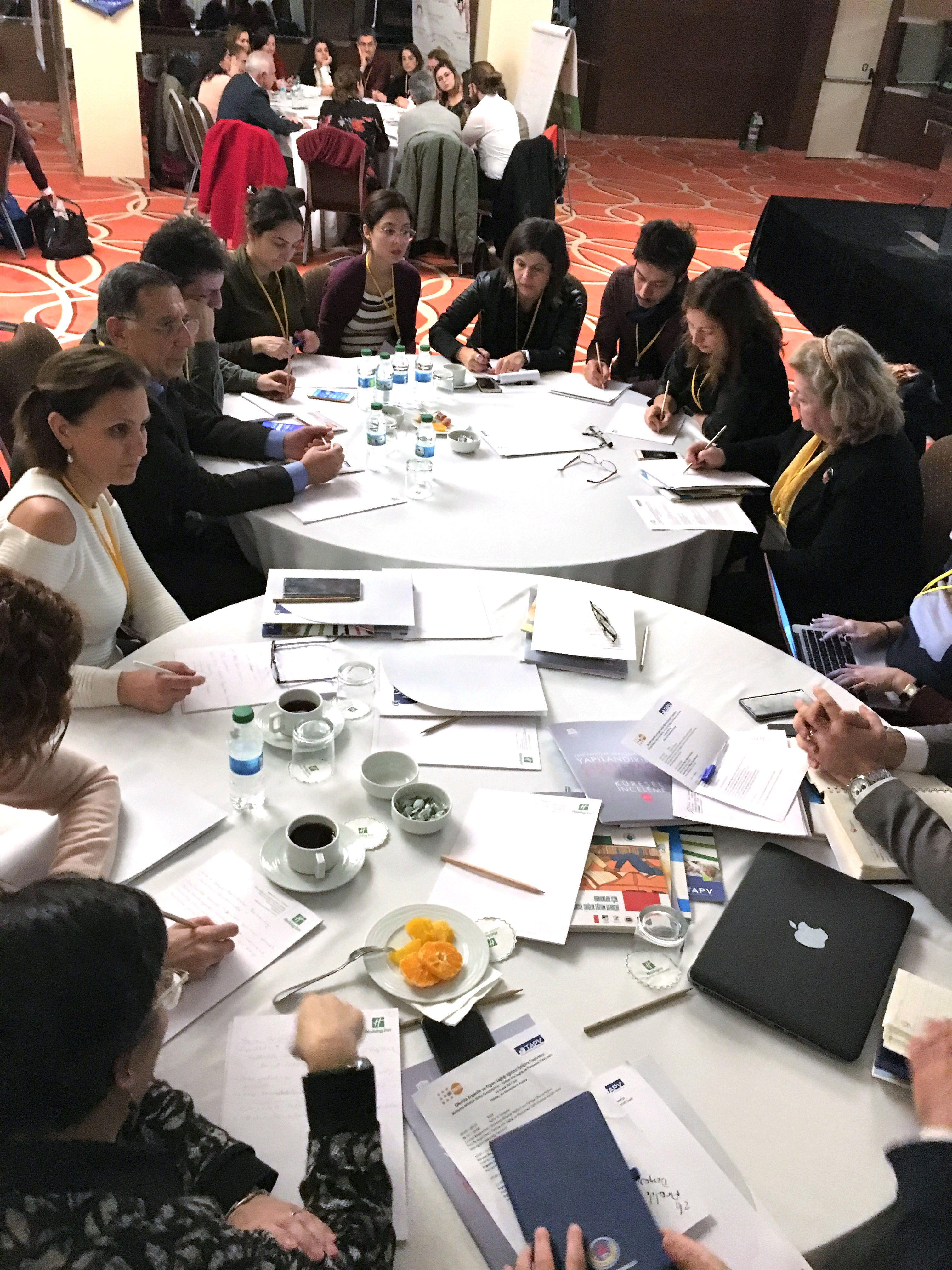
United Nations Population Fund (UNFPA)
The United Nations Population Fund (UNFPA) was established in 1969 as the biggest aid source with international funding in the area of population operating around the world. UNFPA operates in more than 150 countries for creating policies and strategies that support sustainable development. Having started its activities on a project basis, the United Nations Population Fund (UNFPA) has been working on reproductive health, encouraging social-gender equality, and collecting, using and distributing data about development and humanitarian aid in Turkey since 1971. Within this framework, the first Country Program lasted from 1988 to 1992 and now the Sixth Country Program (2016-2020) is being executed.
The United Nations Population Fund (UNFPA) works to deliver a world where every pregnancy is wanted, every childbirth is safe and every young person's potential is fulfilled. To this end, UNFPA focuses especially on 4 of the Sustainable Development Goals (SDGs); SDG 3: Good health and well-being, SDG 4: Quality Education, SDG 5: Gender Equality and finally, SDG 17: Partnerships for Goals
Follow United Nations Population Fund (UNFPA) on social media:

